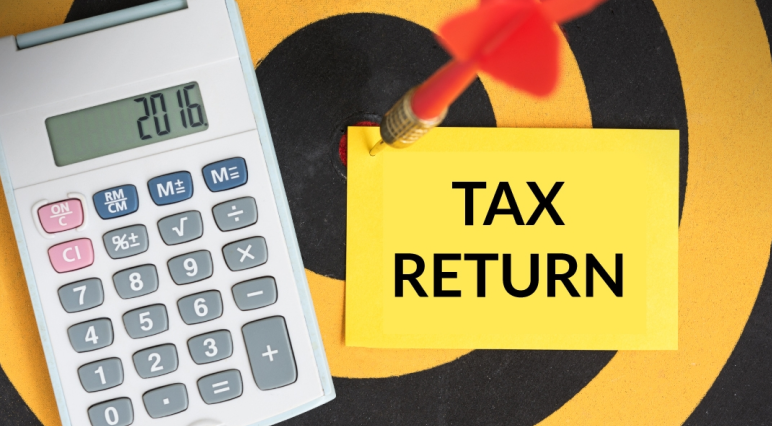Common Mistakes to Avoid When Filing Your Tax Return in the US

Filing your tax return may seem like a once-a-year chore, but overlooking key details can cost you time, money, and peace of mind. Each year, millions of U.S. taxpayers make avoidable mistakes that lead to delayed refunds, unexpected penalties, or even IRS audits. Whether you’re a first-time filer or a seasoned small business owner, this guide covers the most common tax return mistakes to avoid in the US—and how to fix or prevent them.
Why Tax Return Mistakes Matter
The IRS processed over 260 million returns in 2024—but a significant portion contained errors. While some issues trigger minor delays, others can lead to audits or legal consequences. Understanding what to avoid is your best defense.
“The IRS is not out to get you, but it will flag returns with discrepancies. Most issues stem from simple oversights,” says Michelle Perez, CPA, a tax expert with 15+ years of experience in individual and business filings.
1. Using the Wrong Filing Status
Choosing the incorrect filing status is one of the most common errors. It impacts your tax bracket, standard deduction, and eligibility for credits.
Common Mistakes:
Filing as Single when you’re actually Head of Household
Married couples filing Separately without realizing it may increase tax liability
Tip:
Use the IRS Interactive Tax Assistant to verify your correct status.
2. Missing or Incorrect Social Security Numbers
It may seem minor, but a wrong Social Security Number (SSN) can delay processing or invalidate your return altogether.
Pro tip: Always double-check SSNs for you, your spouse, and dependents. Typos in this section are a red flag for IRS systems.
3. Underreporting or Omitting Income (Especially 1099s)
Forgetting to include freelance or gig economy income (reported on Form 1099-NEC or 1099-K) is a serious mistake.
Real-World Example:
In 2023, a freelance photographer failed to report two 1099-NEC forms totaling $8,000. Months later, she received a CP2000 notice and had to pay taxes plus interest and penalties.
Tip:
Use IRS Wage & Income Transcripts to catch forms you may have missed.
4. Claiming Ineligible Credits or Deductions
The Earned Income Tax Credit (EITC) and Child Tax Credit (CTC) are commonly misused. Errors often stem from misunderstanding eligibility.
IRS Audit Trigger:
Claiming the EITC for a non-qualifying child or claiming business deductions for personal expenses.
Tip:
Keep documentation. The IRS often audits returns claiming refundable credits without proper records.
5. Not E-Filing or Using Direct Deposit
Paper filings are prone to human error and longer processing times. Direct deposit ensures faster refunds and better security.
“Paper returns delay refunds by up to 6 weeks or more, especially during peak season,” notes IRS Enrolled Agent Tom Richards.
6. Failing to Sign and Date the Return
Believe it or not, one of the most overlooked steps is signing your return—especially for paper filers. A return without a signature is invalid.
7. Incorrect Bank Account Info for Refunds
Entering the wrong routing or account number can delay or misdirect your refund. Always cross-check your bank info before submitting.
8. Filing Late Without an Extension
The tax filing deadline is typically April 15. Filing late without an approved extension leads to:
A Failure-to-File Penalty: 5% of unpaid taxes per month
A Failure-to-Pay Penalty: 0.5% per month
Tip:
Use Form 4868 to request an extension—but note: it doesn’t extend your payment deadline.
9. Not Keeping Copies of Your Tax Return
Many taxpayers fail to save a copy of their return and supporting documents, which are crucial if you’re audited or need to amend.
IRS Suggestion:
Keep tax records for at least three years, or up to seven if you claim certain losses.
10. DIY When You Should Hire a Pro
Using free tax software is great for simple returns, but if you:
Own a business
Have multiple income streams
Claim complex deductions
Consider hiring a Certified Public Accountant (CPA) or IRS Enrolled Agent (EA) for peace of mind and maximum accuracy.
Frequently Asked Questions (FAQs)
Is it okay to file taxes late in the US?
No. Unless you file an extension before the deadline, you may face penalties and interest on unpaid taxes. Always try to file on time, even if you can’t pay in full.
What happens if I miss reporting a 1099?
The IRS cross-references your return with third-party forms. You’ll likely get a CP2000 notice proposing changes to your return—and you’ll owe tax plus interest and possibly a penalty.
Can I fix my tax return after filing?
Yes. You can file an amended return (Form 1040-X) to correct errors. E-filing for amended returns is now available for most years.
Are tax software programs reliable?
Yes—for most simple filings. But software can’t always detect complex filing issues or strategy gaps that a tax pro would catch.
Final Thoughts: Avoid Mistakes, File Smart
Filing your tax return doesn’t have to be stressful—but it does require attention to detail. By avoiding the mistakes outlined above, you’ll reduce the chance of IRS trouble and increase your chances of a smooth refund experience.
Takeaway: When in doubt, consult a licensed tax professional before filing—especially if your situation is anything but straightforward.
Need help with your taxes this year? Consider working with a certified CPA or using a reputable tax service to make sure you get it right the first time.
